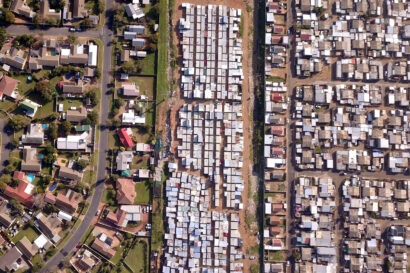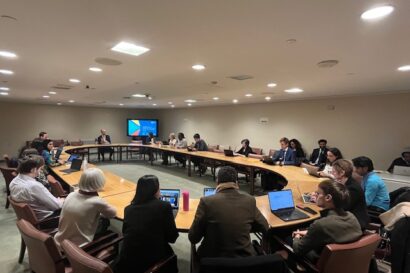Borno State, in north-eastern Nigeria, has faced intractable security challenges in the last decade that has led to the destruction of businesses, livelihoods, property and public infrastructure. As a result, real estate in the capital of Maiduguri and other peaceful areas has seen an increase in demand.
Normally, a real estate boom would lead to increased property tax revenue, yet the ability of the state to raise revenue has been severely limited due to a lack of effective systems to properly identify taxpayers, inefficient administration, and weak enforcement capacity.
In the face of these challenges, Borno implemented an innovative solution to widen its tax net and improve compliance with personal income tax in the State by levying a withholding tax (WHT) on rental income.
How did it work?
In Borno, 10% of rental income is now withheld from tenants and remitted to the tax authority on behalf of property owners and landlords. This allows for the advance payment of income taxes, with the payment deducted at source.
These payments are then used to offset income tax liabilities or recovered through a refund if the taxpayer bears no liabilities. Taxpayers whose income tax is deducted at source via WHT are still required to file an annual tax return, submitted to the federal or state revenue authority for companies and individuals, respectively.
The implementation process
Borno State’s Internal Revenue Service (BO-IRS) is responsible for administering the WHT for enterprises and individuals residing in the state. Although the enactment has been in existence since 1993, the BO-IRS did not explore the revenue potential of WHT on rental income until September 2020, with the passing of the Borno State Consolidated Revenue Law.
In 2021, a few months after the appointment of the current management of the BO-IRS, a robust programme was developed, which focuses on enumerating taxpayers and administering WHT on rental income for commercial and residential properties.
A low technology approach was adopted for the early stage of the programme covering enumeration, assessment, collection of payments, compliance, and enforcement follow-ups. BO-IRS also proceeded gradually, as this provided ample opportunity for stakeholder engagement, which was essential to securing both internal and external buy-in for the reform.
Prioritising sensitisation
A persuasive rather than punishing approach was taken for Borno’s roll out of the WHT on rental income, as most of the rent paid before the sensitisation commenced was done without consideration of WHT deductions.
The programme began by documenting and issuing assessments of 10,000 commercial real estate properties. The campaign then released just-in-time communication to the relevant stakeholders, including tenants and landlords, professional bodies (lawyers, accountants, and estate managers), real estate agents and brokers, local authorities, and government agencies.
The sensitisation efforts educated taxpayers about the benefits of the tax, how to comply in deducting and remitting WHT, and the consequences for defaulters. BO-IRS also emphasised that taxpayers could take advantage of the grace period provided to regularise their tax affairs.
This approach was critical considering the disruption in the relationship between property owners and tenants, as well as the wider implications of new information about income of individuals not previously visible to the tax authority.
Insights and success
By pointing to the income of property owners, the WHT became a compliance trigger. The WHT filed by tenants provides new insights on the income profile of taxpayers, which the BO-IRS can use to validate claims on returns filed by taxpayers, especially for personal income tax (PIT) and Pay as You Earn (PAYE), a tax paid by people in formal employment.
In this way, the WHT on rental income led to an increase in the number of active taxpayers in the Borno’s tax register and an increase in the State’s revenue collection.
Since the beginning of the WHT programme, the BO-IRS has enumerated and issued 9,980 assessments with the potential revenue of N600 Million (approximately US $ 1.4 million) in 2021, out of which N350 Million (US $ 850,505) has been collected.
This represents 58% of revenue potential from the WHT handle, which is a significant boost to the revenue profile and morale of BO-IRS staff. However, there is still room to improve compliance and increase the tax collection rate.
Looking to the future
The experience in Borno provides a clear example of WHT working as a simple solution to increase income tax collection in a context where tax administration systems are weak or constrained.
A more technologically-driven second stage of the programme will use geographical imagery for property mapping. At the same time, a robust new Tax Administration System will support administrative tasks, namely the assessment of the WHT rate, billing and distribution of invoices, payment follow-ups and compliance. The integrated modules of the system will allow for automatically generated letters and payment reminders.
By leveraging technology, Borno will continue to make progress in closing the remaining revenue potential gap.
With thanks to Rhiannon McCluskey for support in writing this piece.




